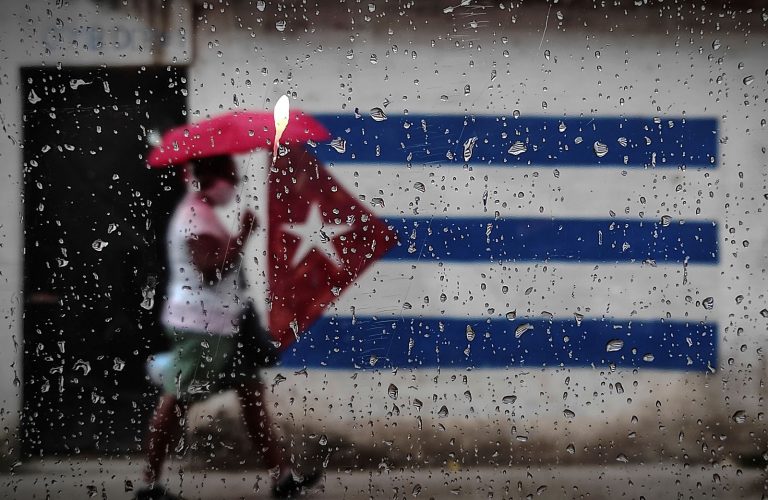The United States has returned Cuba to the State Sponsor of Terrorism (SST) list, reversing an Obama-era concession to remove the Communist country from the list during attempts to normalize relations.
In April of 2015, President Obama justified to Congress the removal of Cuba from the SST with “the government of Cuba has not provided any support for international terrorism during the preceding six-month period,” and Cuba had “provided assurances that it will not support acts of international terrorism in the future.”

In 2017, President Donald Trump reversed the Obama administration’s “Cuban thaw” initiatives by issuing a memorandum “Strengthening the Policy of the United States Toward Cuba.” The memorandum cites the Communist regime’s detainment and persecution of dissidents and protestors, violations of Cuban citizens’ freedom of belief, and a lack of freedom of speech and free press.
In 2019, the Trump administration’s aggressive policy toward Cuba escalated as it banned U.S. group tours and cruise ships from traveling to the island.
Secretary of State Steve Mnuchin said at the time: “Cuba continues to play a destabilizing role in the Western Hemisphere, providing a communist foothold in the region and propping up U.S. adversaries in places like Venezuela and Nicaragua by fomenting instability, undermining the rule of law, and suppressing democratic processes.”
Success
You are now signed up for our newsletter
Success
Check your email to complete sign up
The move also ended the export of personal and private vessels, as well as private aircraft. According to Mnuchin, the ban intended to keep economic benefits away from the Cuban military and intelligence services.
A Press Statement by Secretary of State Mike Pompeo said the purpose of returning Cuba to the SST list was to “once again hold Cuba’s government accountable and send a clear message: the Castro regime must end its support for international terrorism and subversion of U.S. justice.”
Pompeo’s statement cited the harboring of fugitives, naming Joanne Chesimard, Ishmael Labeet, and Charles Lee Hill. All three were involved in major murders in the 1970s.
Joanne Chesimard, also known as Assata Shakur, was a former member of the Black Liberation Army (BLA), a Marxist revolutionary group. The BLA was a target of an FBI counterintelligence program targeting black power movement groups and activists. Shakur was an accomplice to the murder of New Jersey State Trooper Werner Foerster in 1973. She was convicted in 1977, but escaped from prison in 1979 and has remained in Cuba since 1984.
Black Lives Matter (BLM) painted Chesimard (Shakur) into the letter “E” in a 250-foot mural in Palo Alto that spelled the name of the group that rioted, burned, and looted multiple U.S. cities in the summer of 2020 after George Floyd was killed during his arrest.
BLM was criticized by the National Police Association (NPA) for including Chesimard as a hero. “These were not social justice warriors, as we see today,” said NPA spokesperson Betsy Smith in an interview with ABC7 News in July. “These were felons. They were criminals. They were killers.”
The artist who painted the mural, Cece Carpio, claimed her work was “targeted” by the NPA, denying that the inclusion of Chesimard was wrong: “The fight for Black Liberation has paved ways for us to be here. It is our responsibility to continue to defend Black Lives and support Black resistance.”
NPA’s Betsy Smith refuted Carpio: “But to put a convicted cop killer. She [Chesimard] killed a very young state trooper, escaped prison, fled to Cuba where she remains to this day alive and well when she should be in prison. It’s a hostile work environment for the law enforcement officers that have to pass by that every single day and see a convicted cop killer’s face on that mural right in front of their own city hall.”
Secretary of State Pompeo also cited Cuba’s association with Venezuelan socialist tyrant Nicolas Maduro, saying: “The Cuban intelligence and security apparatus has infiltrated Venezuela’s security and military forces,” and that Cuba’s Communist regime’s support of Maduro “has created a permissive environment for international terrorists to live and thrive within Venezuela.”
Countries listed on the SST are subject to U.S. sanctions on arms exports and sales, economic assistance, and citizen entry restrictions to the United States.
Follow us onTwitter or subscribe to our email list
















